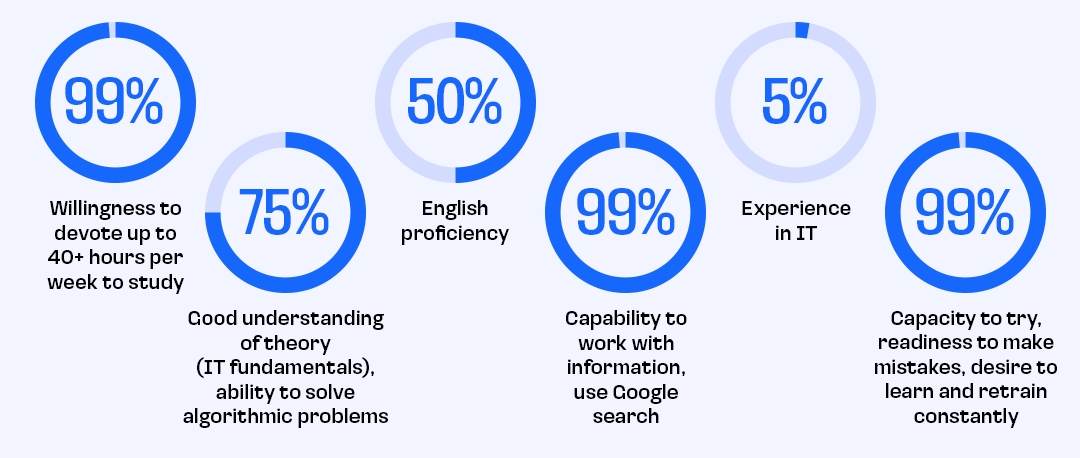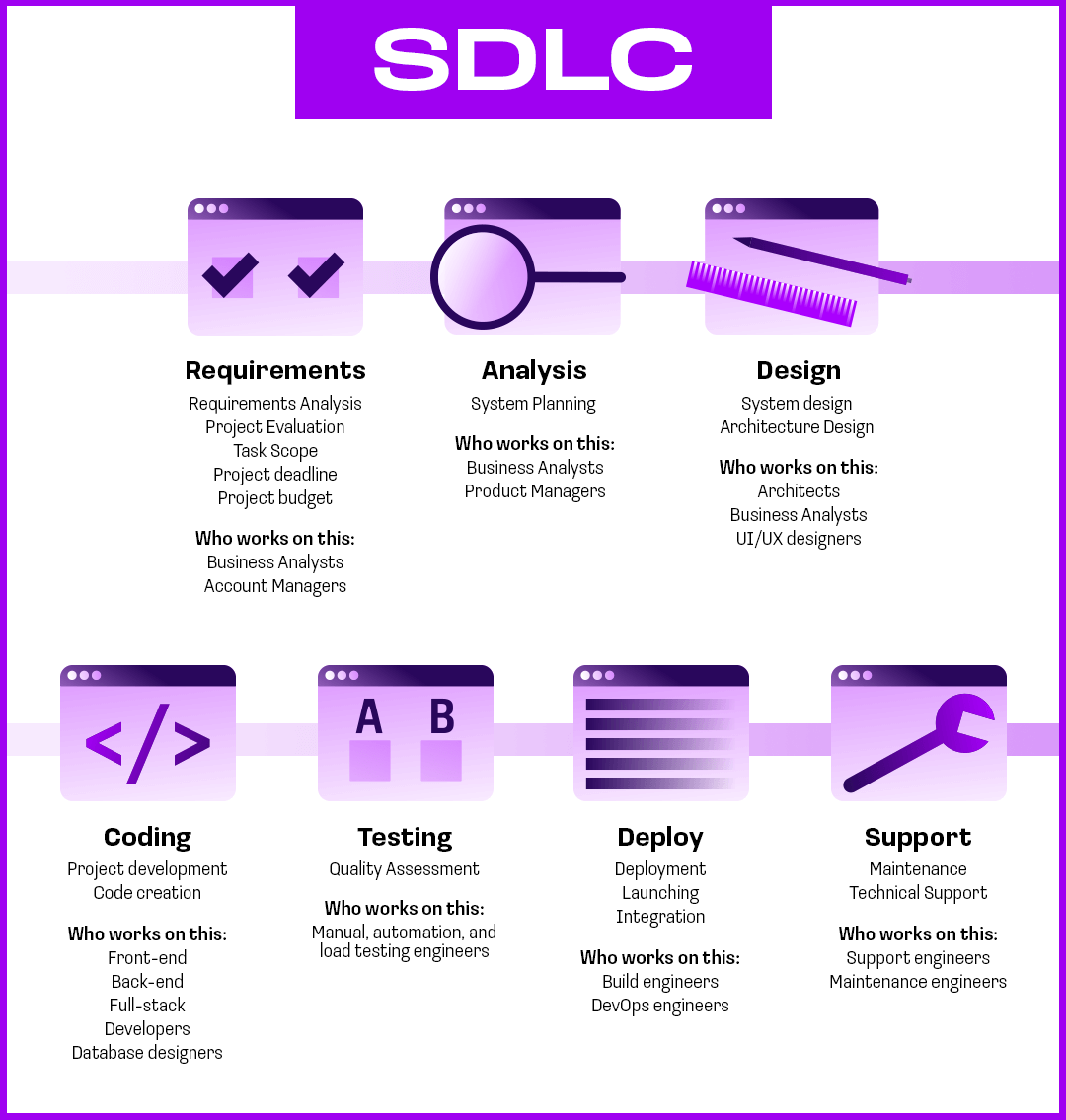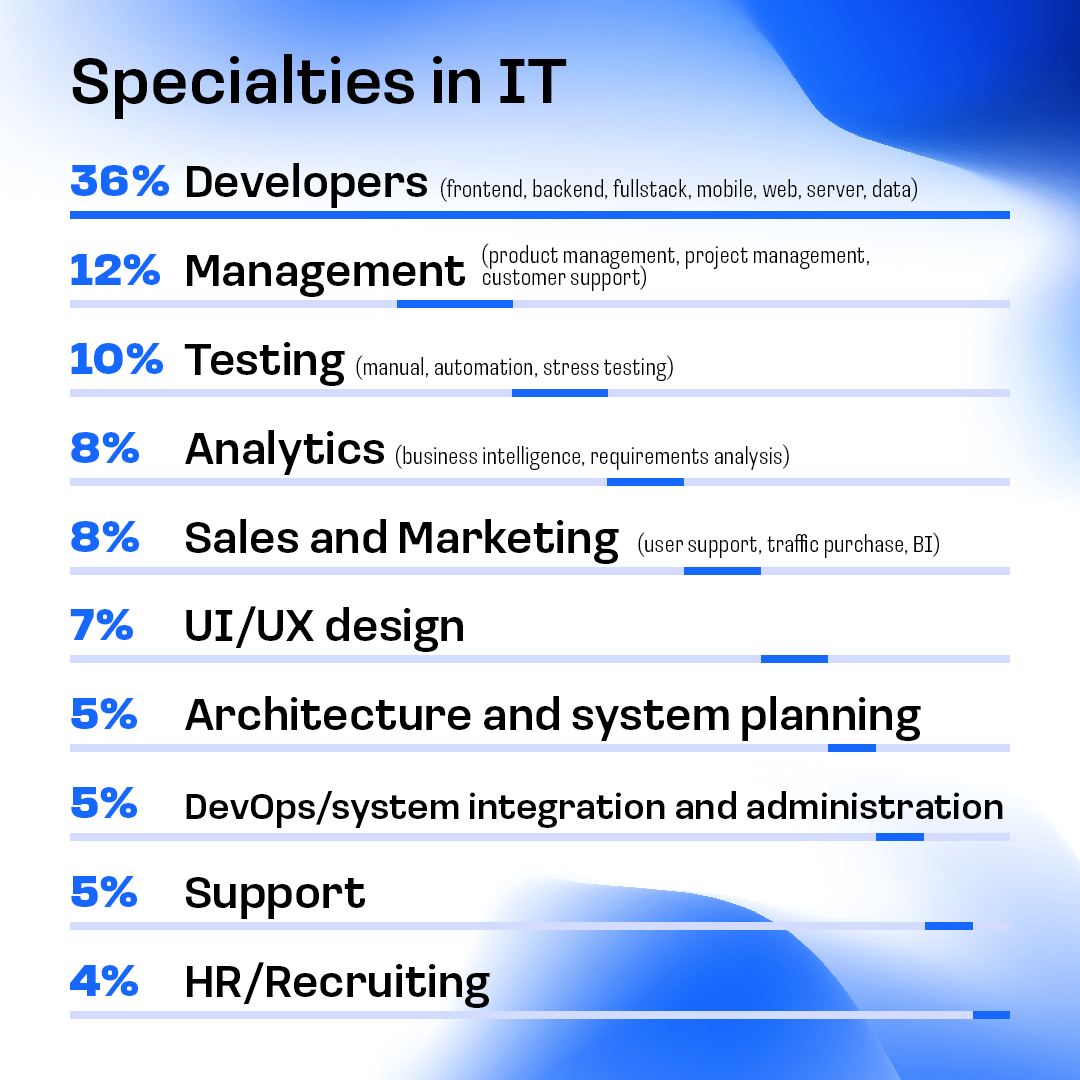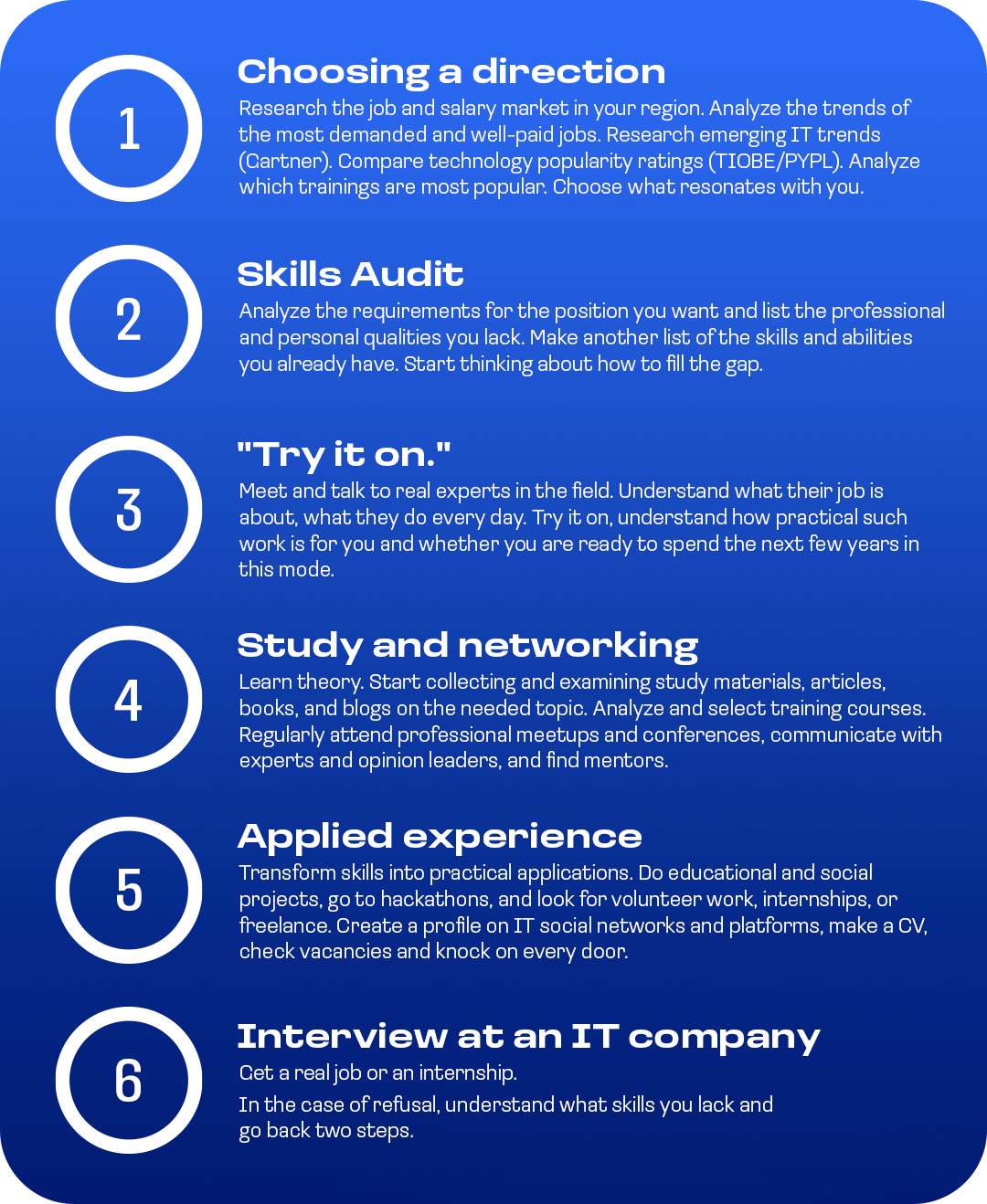To learn how to write code, you have to write code: how to get into IT?
Make money, relocate, get married — no, it's not someone's New Year's wish list: these are actual reasons people give when describing why they got into IT. Career Development Mentor Amina Idigova speaks on the top reasons people get into IT and what it takes with the Anywhere Club blog.

Why do people choose their path in IT?
According to most surveys, people strive to get into IT for various reasons, primarily because of high pay and high demand for IT professionals. It fully corresponds to reality: both parameters tend to grow steadily, even in a crisis — and especially in a crisis.
Undoubtedly, working remotely, high international employability, and the opportunity to grow professionally make IT a tidbit. Finally, it is possible to find a job without a diploma in the IT field, as it's crucial what you actually do, but not your papers and certificates.
Surprisingly, many people in IT are drawn to the opportunity to get married successfully! These thoughts are not wholly groundless: the statistics of large IT companies show that from 8 to 17% of employees are married to each other or are in a relationship.
The barrier to entry has decreased within the last few years, which could only attract more people to the field. While the complexity of the tasks that the IT industry solves has grown, the ways of implementing these tasks have become more accessible. Numerous frameworks, accelerators, and libraries have appeared. Development became a constructor, where part of the functionality is assembled from ready-made "cubes," like Lego.
How You Can Get Into IT
Today, almost anyone with any specialization and at any age can get into IT as long as they are ready to learn English (at least up to B2 level) and agree to work 10-12 hours a day for the first 12-18 months to get applied experience in real projects.
A critical skill for entering the profession is being proficient in googling. Being able to search for information on the Internet gives you a serious competitive advantage at the start. Knowing how to find information in English is almost a guarantee of success. At some point, it may be surprising that it's possible to find practically any code you need, and all that is left is to compile the required functionality from this constructor.
Critical skills such as the willingness to try, make mistakes and ask questions, the desire to start, and the ability not to quit (when the first difficulties appear) become critical when getting into IT.

The specialization does not matter much as each IT profession has its challenges. Every work has tedious parts, obstacles, and a constant demand to grow and learn new things.
Three signs that tell that this profession is right for you:
- This field shows an upward trend. Look at the ratings like TIOBE/PYPL, study charts of the most successful startups, trend reports from major global consulting companies like Gartner, and request analytics from the top courses (such as Coursera's). Most importantly - make sure that the technology is in demand and the demand is growing.
- The field should resonate with you - arouse interest and curiosity.
- Working in this field adds "trendiness" in the eyes of people that matter: your close ones, opinion leaders, the professional community.
Which path to choose?
To understand which specialization is the most desirable, it is better to look at the development cycle and realize which fields are relevant at what stages.

In IT, many areas are not directly related to writing code beyond project development.

A step-by-step plan for entering IT looks like this:

The hardest part is to choose your direction. Almost 60 % of those who want to study IT get eliminated initially, as the Internet is overloaded with IT courses or vacancies. Still, it is almost always unclear which of these will suit you and which specialization to choose.
The truth is that at such an early stage, there is not much difference. Whatever IT profession you choose, you will feel difficulty and the desire to quit at the very beginning of your studies. It may seem that you are not made for this, but that is a long way off from reality. Any new profession will cause similar difficulties at the beginning. Usually, this stage is crushed not by the smartest ones but by the most persistent ones. I advise you to decide if you plan to "study" or "learn." You can study for years, but you have to put in the effort and time to learn.
You can't say that any professions are easier to learn or less responsible. Some extend others. For example, it's almost impossible to become a Data engineer without development experience, and it's hard to become a DevOps engineer without a systems engineer experience.
It, therefore, seems unfair to say that it is easier to get into IT through testing or business analysis. There are thousands of people who are successful in totally different IT disciplines.
You couldn't simplify things and say that investing time into learning JavaScript or Python is more "strategic" than learning other development languages. It's not true: all technologies change and evolve; it's impossible to study something and then rest on your laurels. You will have to retrain constantly - at least once a year, as everything becomes obsolete quickly.
The funny thing is that for the Senior Developers, after three years of experience, the technology becomes secondary; usually, by that time, they already know several development languages and have much expertise in them - primarily out of a desire to peek and borrow something.
So it doesn't matter which technology you choose when entering IT. All professions are closely intertwined and depend on each other.
You'll find that the beauty and logic of code is a very creative task, almost like design. Designers, in their turn, need to understand how their solution will look in an application, so experience with development is equally essential for them.
Business analysts implement business logic by writing clickable wireframes, which is a scripting skill. Testers automate some of their work so that they can stumble without knowing any programming language, too.
Marketing, in general, is impossible today without analytics and big data. Even recruiters write scripted Boolean queries to build a more focused candidate search.
More than 60% of IT students are "switchers" from other professions aged 35-51+: mostly financiers, lawyers, teachers, linguists, metallurgists, and doctors.
Many professions and technologies have long been closely intertwined. Today, almost all disciplines have turned into IT by a certain percentage, and this shift is constantly expanding.
You can enter IT through almost any available "door." After learning the basics, it will be easier to understand and switch to a more appropriate specialization. Don't be lazy and not look for excuses or clichés like "I'm not a techie." The theory of multiple intelligences proved that there is no such thing as a "humanitarian" or "technician" mindset.
No one will hand you a profession on a silver platter. You will have to work hard and learn everywhere — and all the time. Many studies confirm that an expert differs from a non-expert in the amount of applied practice. An expert practices 17 times more. I wish that, at least in IT, there was some magic pill that integrates knowledge directly into your brain, but unfortunately, there is no such thing. To learn how to write code - you have to write code. Before work, during work, and after work. Researchers call this phenomenon deliberate practice - "practice beyond practice."
Suppose a person can find patterns, identify connections, see the structure, determine the order and understand that an equation is the same metaphor that can describe an application architecture, a tune, a design, a business model, and many other things. In that case, they will become an expert in any field.
We invite you to ask questions about IT to our community in Discord.

.png)
